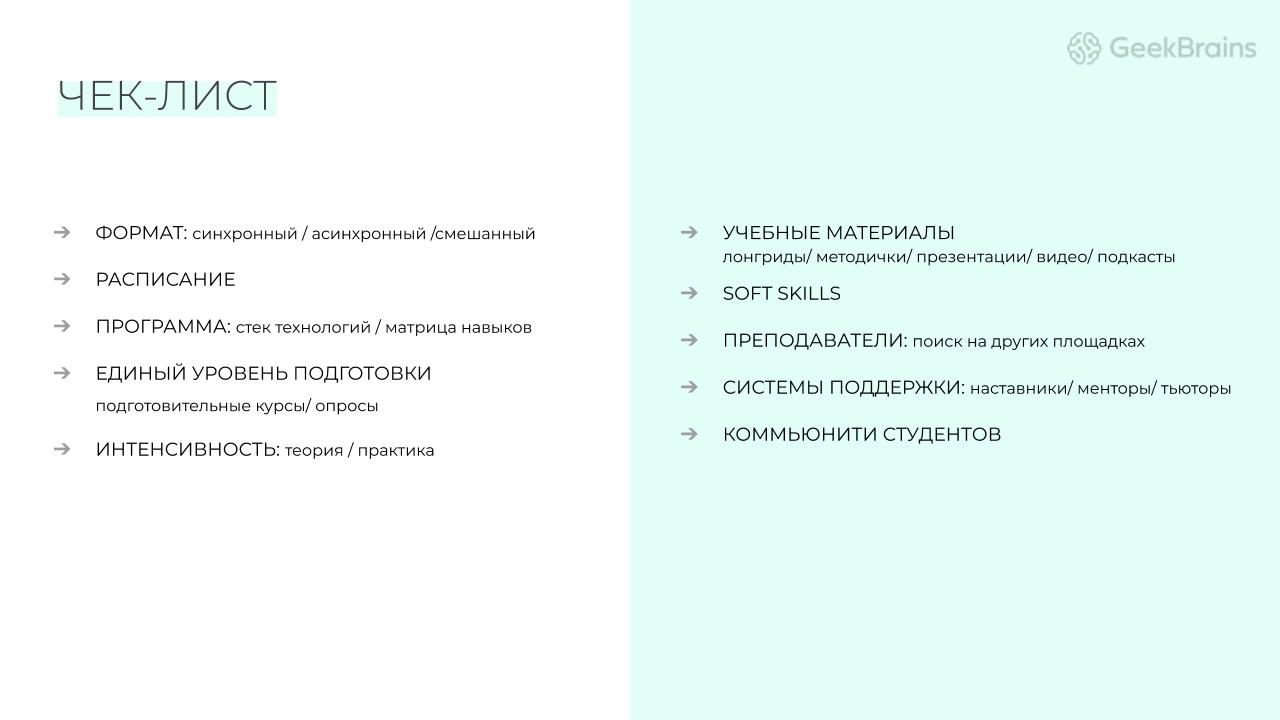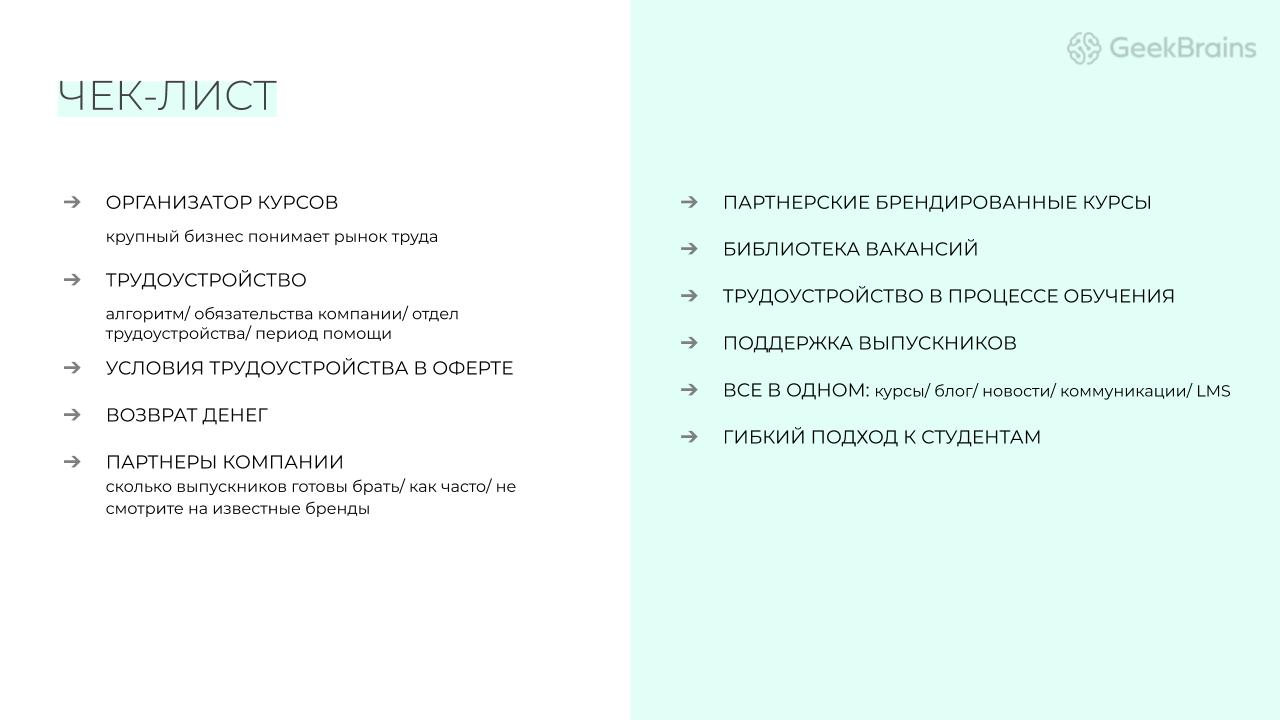Ozon: educational hub for IT in e-commerce
Ozon has several educational projects for adults at once (there are also children's ones, but about them separately): Ozon New Skills courses, a master's program in Data Science and Business Intelligence Ozon Masters, as well as the Ozon Go school. The main goal of launching our own educational projects is to hire specialists. So, about 60% of the company's services are written in the Go language, and after graduation from the school, graduates will receive job offers at Ozon. Own educational programs allow you to teach specialists the necessary technology stack and give them the skill to work with real business cases, which means that after graduation, specialists will begin to benefit the business faster.
Now in the IT-laboratory Ozon there are about 140 vacancies in various directions, and both experienced specialists and beginners can become part of the team - for example, graduates of School 21 and Yandex.Practicum work in Ozon.

Yandex.Practicum: not necessarily in Yandex
Yandex.Practicum programs are training from scratch on a special simulator of the working environment, where participants can receive feedback on their decisions almost immediately. Anastasia Fatykhova, the leader of the work with experts, spoke about them. During the process, students are accompanied by a team of mentors, curators and code reviewers. Most of the projects created in the course can be immediately included in the portfolio.
Despite “Yandex” in the name, completing the courses does not guarantee an offer to the company. However, the course helps in finding a job, and the career track begins already from the middle of training - this shortens the period of job search after graduation, which means that graduates do not lose motivation to work in a new field. Students are taught to write resumes, interviews, portfolio assistance, and career counseling.

As a result, about 70% of graduates are employed 3-5 months after graduation, and some find work even in the process. And even after returning to work, Yandex.Practicum graduates receive support during a probationary period in a new company.
Tinkoff: Fintech in Practice
Ekaterina Shestimerova, head of educational programs at Tinkoff Bank, spoke about the company's programs:
- « » — , .
- « » — .
- « » — (, , , ).
- « » — , , , .
There are two types of people most often come to IT. The first one is interested in mathematics and computer science from school, participates in olympiads, specialized circles, enters a specialized university and participates in competitive programs from IT companies.
The second type is people who already have experience in another industry, but want to move to IT. They carefully study specialized courses, take them, and put additional efforts into education. If the first type of people studies for about 11 years, the second group receives new knowledge in about six months.
Each of the types has its own pros and cons, which reflect the peculiarities of educational programs of universities and business.

When creating courses, Tinkoff focuses on business objectives - vacancies, the needs of departments. And since the courses are made up, among other things, by the company's employees, the training is tailored to real-world tasks, and approximately 15% of students end up on the company's staff after completing the courses.
School 21: peer-2-peer learning
Svetlana Nokhrina, Project Partner Relations Director, spoke about one of the largest educational projects in IT - School 21, created by Sberbank using the Ecole 42 method, a French project focused on practical tasks. The school is attended by about 2 thousand students of all ages, sex and with different backgrounds.
The school has no grades, teachers or lectures, and the teaching itself is peer-to-peer. Students can choose their own learning track and go through it at a convenient speed, first gaining basic knowledge, and then delving into a specific IT area, or try different areas to decide which is the most interesting for them.
The learning process is structured so that students develop soft skills in parallel with professional skills. They themselves analyze open sources and decide what they want to do, what requirements they satisfy, and what else needs to be pumped. This is where peer-to-peer helps as more experienced learners give advice to beginners.
To help graduates find work, the School invites experts from different companies to talk about where to focus in development and how to get interviewed. About 200 students of the school are currently undergoing internships, and 98%, as practice shows, receive an offer after completing the internship.
In the career race, active people succeed who have firmly decided what they want, studied the market and are constantly developing. And in employment, the most important role for the employer is played by the candidate's GitHub and his soft skills, and not the resume or certificates from the courses.
GeekBrains: Learning with Guarantees
Alexander Skudarnov, EdProduct of the "Programming" direction of the educational portal GeekBrains, began by saying: no one will guarantee employment.
Education is a two-way process, based on the results of which employment depends largely on the student and his efforts, courses create a favorable environment for this.
If the program promises employment, then during the training there should be an emphasis on production: working with real business tasks and customers; deadlines and deadlines for when the student should prioritize tasks; work in a multifunctional team; defined development methodologies; code legacy and quick on-site training. Such experience can be provided by internships, team development, B2B integrations, special courses on production, mutual reviews, hackathons, bootcamps.
Alexander also gave a large checklist for those who are looking for educational courses with help in finding a job:



Questions and Answers
What are the chances of a person over 35-40 years old to enter a new profession through courses?
Exactly the same as for specialists of other ages.
Are there courses targeted at the international market?
Russian companies use and teach an advanced technology stack in their work, which means that the knowledge gained in the courses will be in demand in other countries. At Yandex.Praktikum, you can even study in English and sign up for the American version of the course. And participants in School 21, which is part of Ecole 42, can change campus and work in any country where the program also operates.
Alena Vladimirskaya noted that the Russian programming school is one of the strongest in the world, and therefore the main problem of candidates is not knowledge of the code, but the level of English.
How do you teach systems engineering skills? One gets the feeling that you are focusing on programming languages.
Any algorithms need to be studied using a specific language as an example. For example, Pascal is used to teach the basics of programming. The courses simultaneously provide a theoretical basis and practical skills in using a particular language.
How many people complete your courses?
GeekBrains - 25-30%. Training lasts a year or a year and a half.
Yandex.Practicum - 70%. The duration of training depends on the program, from 6 to 9 months.
In Ozon Masters, 70% passed in the second year. The Ozon Go program has just begun. Judging by the results of the internship, about half of the students become employees.
Tinkoff Fintech - 50%, training lasts 3 months. Master's programs - 95% (2 years). Internships - 95%. Tinkoff Generation - 85-90% (1 year).
How do you deal with the level of teachers and their supervision? Are you guided by Western methods?
More than 100 teachers are involved in Tinkoff's educational programs. Most of them are graduates of other courses. There is an internal program for teachers where they are taught about student engagement and dilution elements.
In Yandex.Praktikum, training is built around a simulator. A team of about 10 people works on each simulator. There are no teachers on the course, but there are mentors - the best developers in the market who work in large corporations. Only 10% of the applicants become them. All mentors are trained in a special school.
School 21 also does not have teachers, but the methodology of the courses is constantly being developed, and training is in step with the needs of the market.
GeekBrains has a team of educators who make sure that the instructors are part of the team and are interested in the development of the company and the quality of its courses.
By the time the courses were launched, Ozon already had a fairly large experience of internal training and an actively working internship program, so many developers tried themselves as mentors and teachers. Methodologists and special trainers help them prepare for lectures, organize material, make presentations.
And for those who still prefer video, we'll leave it here:
Still have questions? Write in the comments, and the meetup participants will definitely answer them!